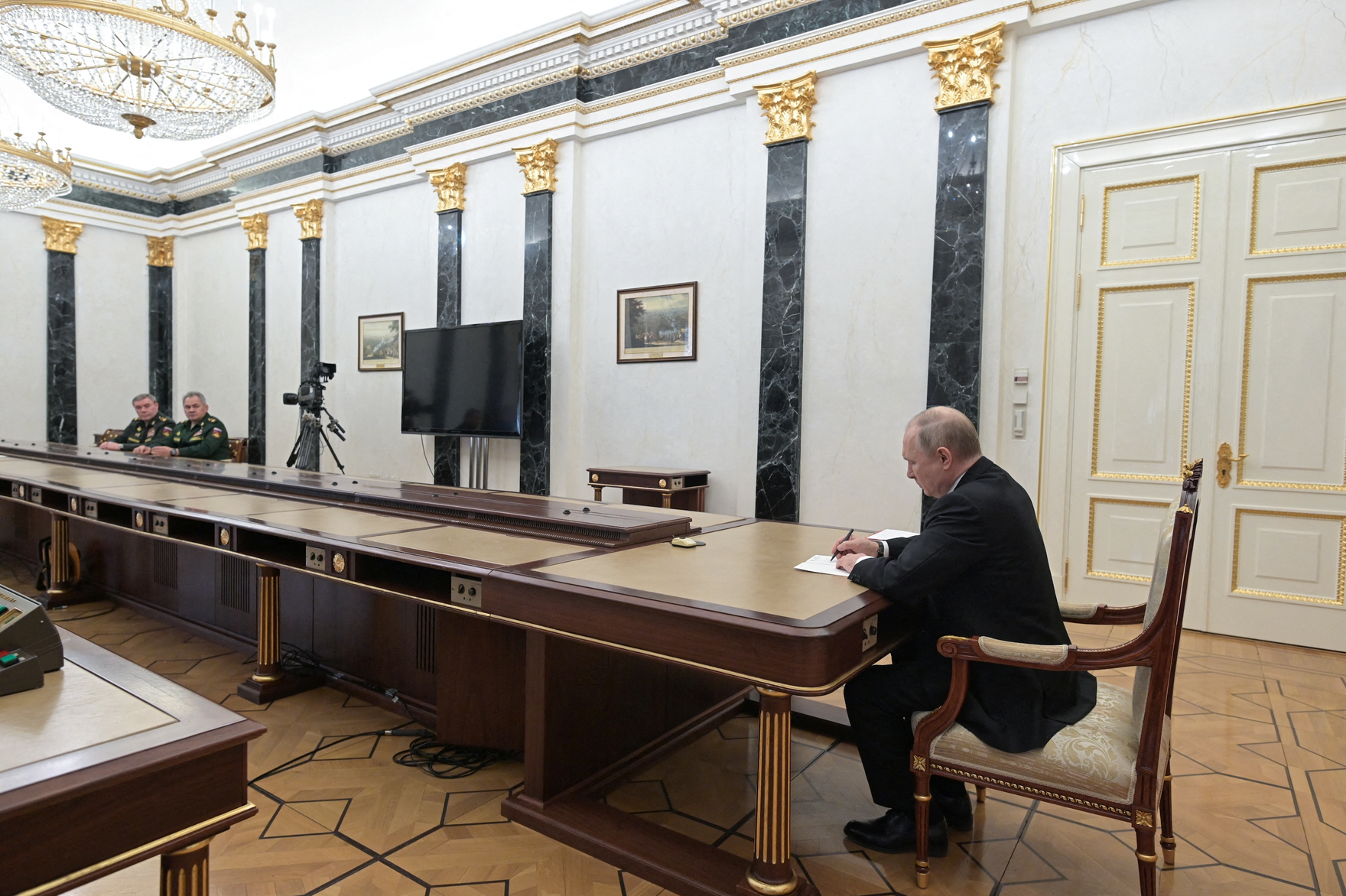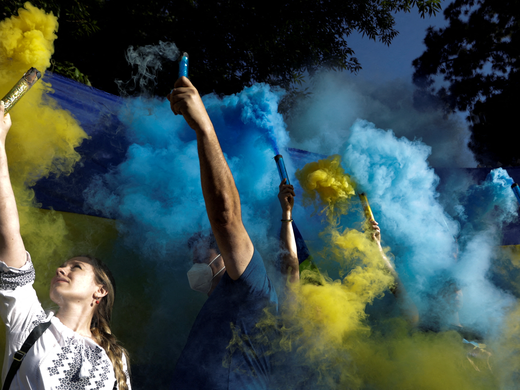For years at conferences on international security and military affairs, “grey” has been the new “black” — operations, that is. After the shock of the 2016 presidential election in the United States, it became commonplace to assume that Russia had developed a dominant information warfare machine as a part of its hybrid warfare strategies. These had helped it achieve lightning-fast victories in Georgia and Eastern Ukraine and supported its often-covert operations in Syria. (Insert a minor mea culpa here.)
And yet, despite the devastating destruction of its invasion in Ukraine, there appears to be a genuine consensus that Russia’s much vaunted information operations capability has greatly underperformed. Why is this the case?
In war, much can change quickly. But already there are some possible explanations to be considered.
Russia didn’t use its own playbook. The most straightforward explanation is that Russia has not even tried to use extensive information operations in its invasion of Ukraine. As Emerson T. Brooking argues in a piece by Patrick Tucker, the sheer scale of the operations and the months-long buildup of forces on the Ukrainian border made it impossible to engage in “psychological dislocation, mass disinformation campaigns, and repeated denials.”
Others argue that Putin’s decision not to share his plans with anyone but his security chiefs has meant that, in the words of Mark Galeotti, Russia’s “media control machine is also having to scramble to spin this unprovoked war.”
Russia’s playbook is outdated. A different version of this explanation suggests that Russia is indeed using its playbook, but has not adapted it since 2014, either due to complacency or overconfidence. When I spoke with J. M. Berger, who researches extremism and information operations, he noted that information operations worked better before they were known and exposed. “It still works with some audiences to be sure, but the actors are known, and the tactics are known, and they don’t work as well under those conditions.” In a nutshell, it is harder to create confusion if actions are predictable. For example, researchers at Bellingcat were able to dismantle a story about proxy attacks in Donbas fairly easily. And Janusz Bugajski notes that Russia’s disinformation operations have been “so transparent they gave up.”
Russia did not adapt, but the West did. A related and somewhat more triumphalist idea is that both Ukraine and the West have learned from and adapted to previous Russian information operations. Much has been made of the way Ukrainian President Volodymyr Zelenskyy, a former actor, has been able to dominate the narrative in this war. The United States, too, has adapted, by pre-empting Russian military moves with unprecedented intelligence sharing and strategic leaks. By doing so, it took away many, if not most, of Russia’s opportunities to use false flags and generate noise about what is happening on the ground. As the war continues, intelligence agencies are providing unclassified briefings on social media and in Congressional hearings. This has provided a clear account of the conflict from the beginning, something missing in previous efforts to counter Russian disinformation.
Conventional warfare is not “grey.” And there’s another possibility. Could it be that the concept of information operations, especially in the context of hybrid warfare, is overrated, particularly in the West? For years some researchers have derided much of the commentary in this arena, noting that while information operations are important, modern wars are waged through a combination of many elements of national power. While the West was shocked at Russia’s hybrid tactics in its successful annexation of Crimea in early 2014, the conflict was already shifting to a more conventional one, something generally overlooked.
Today, while Putin may have hoped for a quick victory in Ukraine, Russian forces are fighting a brutal conventional conflict that does not lend itself to “grey zone” tactics — especially where there is a clear aggressor and victim. Actions speak louder than words, and propaganda cannot make up for a poorly executed campaign that seems to be turning to levelling cities out of desperation.
Nevertheless, these are early days. Inquiries into Russia’s ineffective information operations may need revision in the months ahead. Certainly, as Russia is forced to adjust its military tactics, it can be expected to adjust information operations also. Already, Russia has turned to promoting a false theory that the US is developing biological warfare weapons in Ukraine — a line taken up by anti-vaxxers, QAnon and some of Russia’s usual allies. Some countries, such as China, have taken up Russian talking points, sometimes promoting them on social media.
However, it is also likely that much Russian propaganda will be focused on its own people to create support for a conflict that has already cost thousands of lives, and as economic sanctions begin to crush its economy. Russia will advance its own narrative about Western hybrid warfare, its strategic use of intelligence, sanctions and its arming of Ukraine. The implications of this remain unknown and volatile as the conflict continues.



